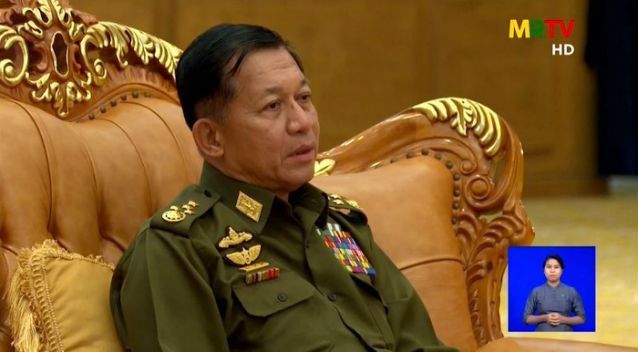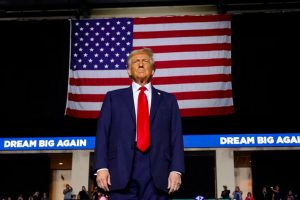(AF) Activists in Southeast Asia have called on the Singapore government to freeze accounts holding billions of Myanmar funds in local banks, in case the generals who seized power in the troubled Southeast Asian nation try to make further efforts to withdraw state reserves.
The plea came after news emerged that the country’s new military rulers tried to move about $1 billion held at the Federal Reserve in New York several days after they took power on February 1.
US officials put a freeze on the money to block the transaction, which was reportedly made in the name of the Central Bank of Myanmar. The officials stalled on approving the transfer until President Joe Biden issued an executive order that gave them legal authority to block the request indefinitely, sources told Reuters.
The attempted withdrawal of Myanmar government funds came after the military arrested elected officials, including State Counsellor Aung San Suu Kyi, whose National League for Democracy party had won a national election in November and was preparing to take office for a second term.
The military claimed the NLD’s huge election win was aided by fraud, but the Election Commission dismissed the allegations, saying there was no evidence to support this and they had no basis.
The move to seize state funds in the US came after the military had detained many members of the ruling NLD, and appointed a new governor at the Central Bank. It appeared to be an effort to buffer the generals financially if they were hit by sanctions for seizing power. And indeed, that is what has subsequently happened.
Meanwhile, the Justice for Myanmar group has claimed some US$5.7 billion of foreign reserves are parked in commercial banks in Singapore.
Singapore’s central bank has claimed that there are no “significant funds” from Myanmar firms or citizens in city state – but rights groups and activists have alleged that proceeds from the Yadana gas pipeline and other cash from the Myanmar military have been kept at two banks in the Southeast financial hub for more than a decade.
‘Freeze the Myanmar Accounts!’
“Those accounts should be frozen as a precautionary measure,” Debbie Stothard, founder and coordinator of Altsean Burma, told Asia Financial on Monday (March 8).
“The Committee Representing the Pyidaungsu Hluttaw (CRPH – MPs from the national elected government ousted on February 1) says the junta is an illegal entity under the 2008 constitution. And it has declared them a terrorist organisation. So it becomes important that anyone holding those assets [of Myanmar] should freeze them until the situation is clarified,” she said.
“The Singapore PM has asked the [military] regime not to be violent and kill people on the streets. But this week he was reluctant to discuss sanctions or action. The junta is on a campaign to prevent any sanctions being imposed – if they weren’t concerned about them, they wouldn’t have been in such a rush to withdraw the $1 billion from New York.
“And there is a strong economic dimension to this coup. They’re trying to bluff the international community to give up on sanctions. But the reality is the Burmese economy is reeling from the Covid epidemic and economic sanctions could split the junta, as it has done in the past.”
Singapore’s central bank has told financial firms to be vigilant to any suspicious transactions or fund flows between the city-state and Myanmar, a circular seen by Reuters showed, citing concerns over the potential for financial crimes.
“Given the developments in Myanmar, FIs (financial institutions) are reminded to take appropriate measures to manage any risks arising from their business activities and customer relationships, including reputational, legal and operational risks,” the Monetary Authority of Singapore said.
The United States, Canada, the European Union and Britain have all issued fresh sanctions following the coup on February 1 and the army’s subsequent deadly crackdown on demonstrators in recent weeks. Close to 60 people have been killed, including unarmed young protesters shot dead with live ammunition while taking part in the nationwide Civil Disobedience Movement. More than 1,800 people had been arrested, including about 30 journalists.
US to Hold Myanmar Reserves ‘Indefinitely’
President Biden said on February 10 that the United States was taking steps to prevent the generals from “improperly having access” to $1 billion in Myanmar government funds.
US officials did not explain the statement at the time, but an executive order issued the next day specifically names the Central Bank of Myanmar as part of Myanmar’s government. The order authorises the seizure of assets of Myanmar’s post-coup government.
Spokespeople for the New York Fed and the US Treasury Department declined to comment on the issue, it said.
But two sources told Reuters the executive order was designed to provide the New York Fed with the legal authority to hold the $1 billion of Myanmar reserves indefinitely. Myanmar’s reserves will be managed by part of the New York Fed known as Central Bank and International Account Services (CBIAS), where many central banks keep US dollar reserves for purposes such as settling transactions.
One source said that was because transactions involving Myanmar require extra scrutiny as the country last year was placed on the international Financial Action Task Force’s “grey list” for money laundering concerns, in part because of the risk of proceeds from drug trafficking being washed through its banks.
CBIAS’ compliance manual, made public in 2016, says New York Fed guidelines include provisions for responding to developments in account-holding nations.
“When appropriate,” it says, the bank’s legal department “will be in communication with the US Department of State in order to clarify current events and any changes that may affect the central bank and corresponding control of the FRBNY account.”
Myanmar’s generals appeared to be firmly in control of the Central Bank of Myanmar at the time of the attempted withdrawal. After taking charge, it detained key economic officials, including Bo Bo Nge, the reformist deputy governor and Suu Kyi ally, according to the Assistance Association for Political Prisoners. He remained in detention as of late last week, it said.
Three More Killed During General Strike
Meanwhile, chaos continues in Myanmar – for a sixth straight week – following the coup, which has sparked widespread opposition from citizens all over the country and brought business to a virtual standstill.
Three anti-coup protesters were shot dead on Monday as demonstrators across the country sought to paralyse the economy with strike action following a weekend of night raids and arrests.
The country has been in turmoil since Suu Kyi was arrested. The police and military have responded with an increasingly brutal crackdown on demonstrators. But despite the risk, protesters rallied in parts of Yangon, the second-largest city Mandalay and other towns around the country. In some areas, the authorities once again responded with force.
- Reuters with reporting by Jim Pollard and AFP
ALSO SEE:
Economic damage intensifies after Myanmar coup
Myanmar Coup: Did The Generals Fear Losing Their Billions?
























